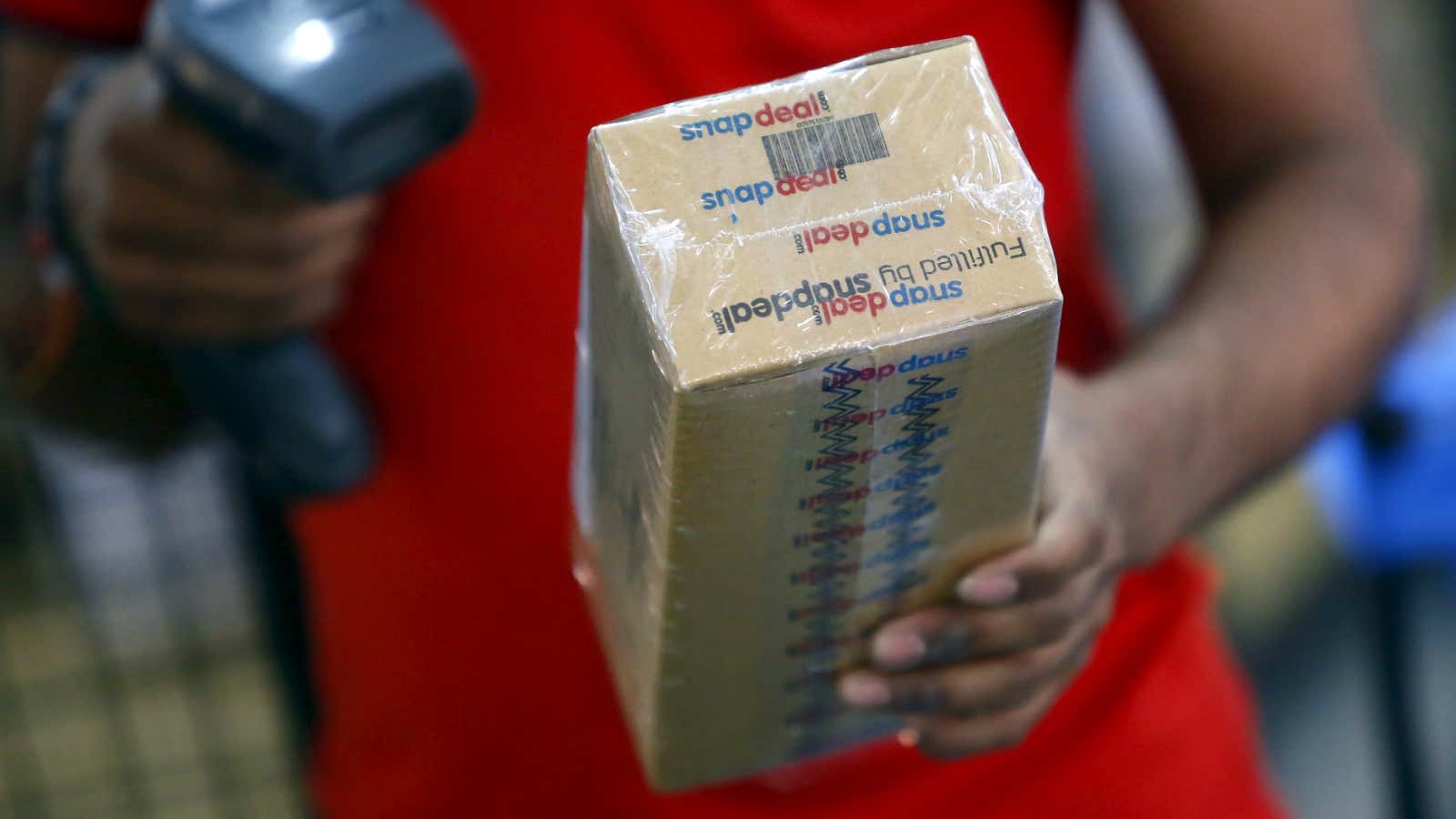A senior member of prime minister Narendra Modi’s cabinet has hinted that last year’s online tirade against e-commerce giant Snapdeal wasn’t some spontaneous show of outrage.
Instead, it may have been a concerted campaign that began soon after Aamir Khan’s revelation last November about his wife’s fears over growing intolerance in India.
In an already acrimonious environment—weeks after writers, poets, filmmakers, and scientists began returning awards in protest of growing bigotry under the Narendra Modi government—the Bollywood actor swiftly came under attack for his alleged lack of patriotism. Some Modi supporters were so infuriated that they went for the jugular: Khan’s commercial interests.
That is how Snapdeal, one of India’s largest e-commerce companies, which then had Khan endorsing it (the contract wasn’t extended), got caught in the crossfire. Within hours, the startup’s ratings on Google Play Store took a dive; around 85,000 users reportedly uninstalled its mobile app. Snapdeal did come up with some damage control PR exercise, but the right-wing “nationalists” had already done their bit.
Now, it appears that the entire shenanigan was orchestrated to hurt Snapdeal and, in turn, Khan—with perhaps even the tacit consent of the Modi government.
Without naming names, Manohar Parrikar, India’s defence minister, cited the Snapdeal-Khan incident to illustrate how some people must be “taught a lesson” for not loving the nation enough. At an event in Pune on July 30, this is what the minister said, according to the Indian Express newspaper:
When the actor did this… then the company which he was endorsing was… an online trading company. Some of our people are very smart, I know. There was a team which was working on this. They were telling people you order and return it… The company should learn a lesson, they had to pull his advertisement.
It’s not entirely clear as to who Parrikar referred to by “our people”, “team”, and “they.”
“I am only trying to point out… if anyone speaks like this, he has to be taught a lesson of his life,” Parrikar added. The plan seemingly worked: In Feb. 2016, Snapdeal decided not to renew its contract with Khan.
A day later, on July 31, Parrikar attempted to mount a defence: “I’m just saying that we should mount pressure, verbally condemn people who speak against (the) nation.”
It’s not that Khan had said something particularly egregious. On Nov. 25 last year, the actor had spoken of his wife Kiran Rao’s anxiety over the growing atmosphere of intolerance:
Kiran and I have lived all our lives in India. For the first time, she said, should we move out of India? That’s a disastrous and big statement for Kiran to make to me. She fears for her child. She fears about what the atmosphere around us will be.
Evidently, if Parrikar’s comments are accurate, that was enough for the ruling Bharatiya Janata Party’s online footsoldiers to be deployed to hurt an e-commerce company. All because its brand ambassador didn’t quite agree with the establishment’s political stance. In India’s hyper-competitive e-commerce segments, where Snapdeal is duking it out with global behemoth Amazon and homegrown major Flipkart, every customer counts.
This is, of course, the same government that bandies about its deep love for startups and entrepreneurs. Oh, the irony.
